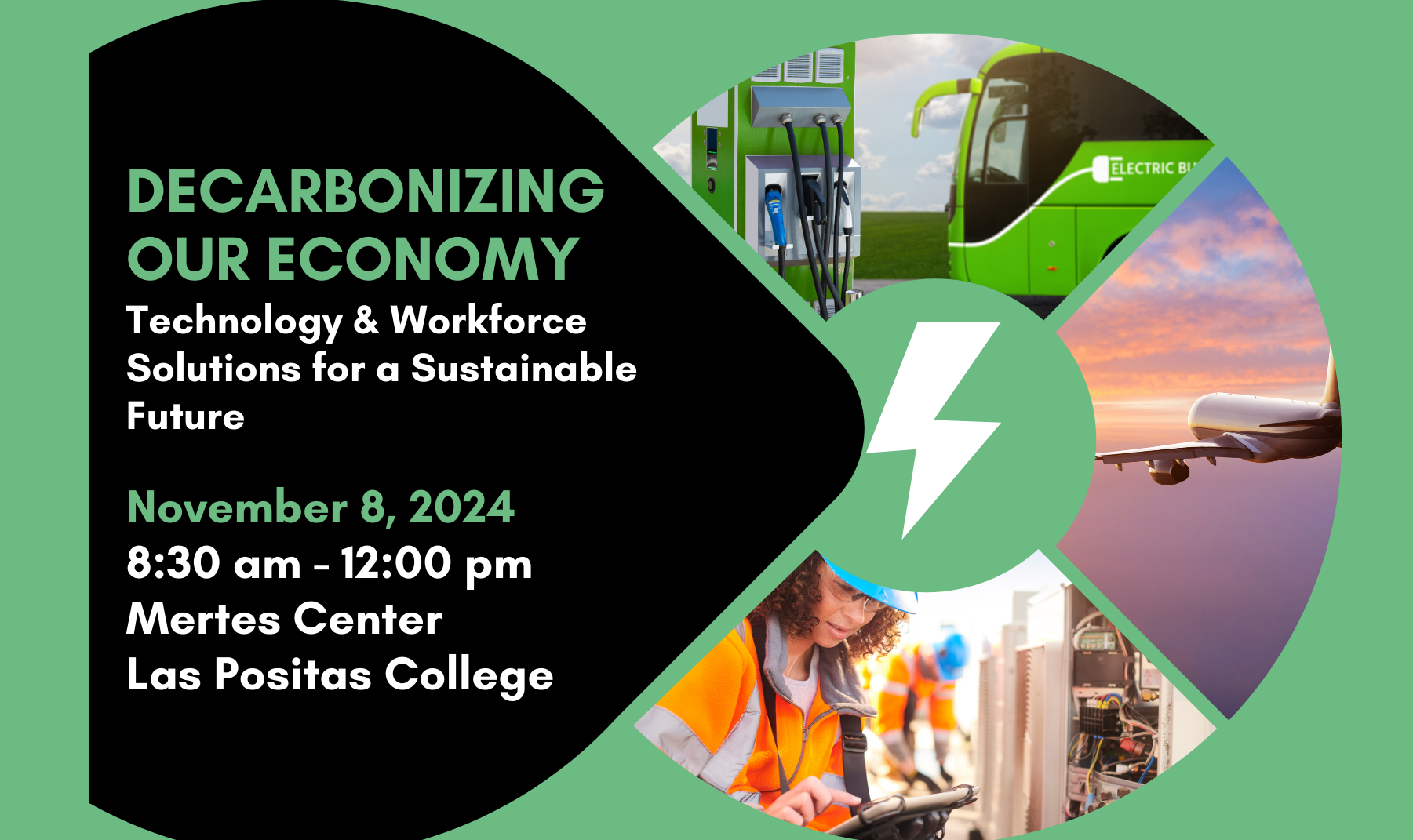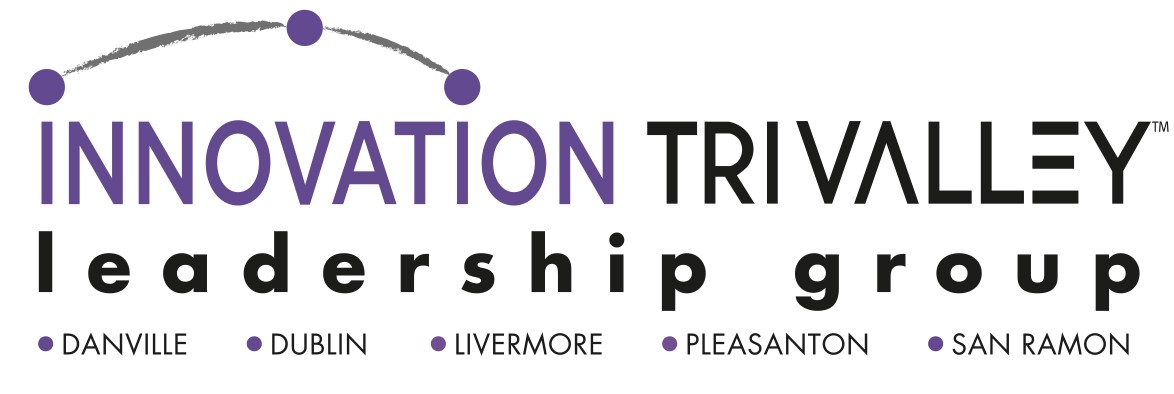

Decarbonizing Our Economy: Technology & Workforce Solutions for a Sustainable Future
November 8, 2024 @ 8:30 am - 12:00 pm
What does a decarbonized future look like
from the standpoint of industry, innovation, and workforce development?
Join us for a brand-new collaborative opportunity between The Livermore Lab Foundation, Lawrence Livermore National Laboratory, Startup Tri-Valley, Innovation Tri-Valley and the Chabot-Las Positas Community College District to share the latest information on the last step needed to get to net zero – direct carbon capture, as well as perspectives from industry and the national labs on enabling technology, infrastructure requirements, and workforce development needs and opportunities.
This event is recommended for companies and agencies who are committed to reaching net zero by 2045 and recognize the unique opportunity we have to accomplish this and create a vibrant, green economy in the process.
This session aims to facilitate communication between industry, scientists, policy makers and the essential educators responsible for training the future workforce.
Advantages of Participation:
1. Engage with and learn from other businesses involved in developing climate tech to green our economy
2. Learn about a new clean tech/workforce development survey and climate entrepreneurs program from the Livermore Lab Foundation
3. Learn about the direct carbon removal recommendations for the Tri-Valley from the Roads to Removal project led by Lawrence Livermore National Laboratory
4. Advise educators at various levels about your company and its products, and the types of potential employees you’ll need in the years ahead


Date: November 8, 2024
Time: 8:30 AM to 12:00 PM
Location: Las Positas College: Mertes Center for the Arts
Agenda
8:30 AM – 9:00 AM Check-In, Student Poster Session, Networking and light breakfast
9:00 AM – 9:05 AM Opening Remarks
9:05 AM – 9:30 AM Keynote Address: Setting the Stage for the Future – the Road to Removal, with Jennifer Pett-Ridge, LLNL
9:30 AM – 10:10 AM Workforce Realities and Solutions
10:10 AM – 11:00 AM Industry Observations and Opportunities
11:00 AM – 11:40 AM Panel with LLNL Science and Technology Leaders
11:40 AM – 12:00 PM LLNL Prototype Enclave, Closing Remarks & Box Lunch
REGISTER HERE FOR DECARBONIZING OUR ECONOMY ON NOVEMBER 8th
Dr. Jennifer Pett-Ridge is a Distinguished Member of the Technical Staff at LLNL, Adjunct Professor at UC Merced and a Principal Investigator of the UC Berkeley Innovative Genomics Institute. Dr. Pett-Ridge studies the microbiology and biogeochemistry of soil carbon cycling, and how to achieve CO2 removal (“CDR”) in agricultural soils. In her research, she uses advanced metagenomics, stable isotope tracing and computational modeling to make quantitative estimates of ecosystem processes. She leads multiple team projects for the US Department of Energy, including the Microbes Persist Soil Microbiome Scientific Focus Area, the DOE Terraforming Soil Energy Earthshot Research Center and the LLNL Carbon Initiative. Recently, she led a 68 member team and published Roads to Removal –a county-level assessment of CDR options in the USA. Dr. Pett-Ridge has co-authored over 150 peer-reviewed technical publications that have collectively received over 10,000 total citations. Pett-Ridge is a recipient of a DOE Early Career award (2014), Geochemical Society Endowed Biogeochemistry Medal (2019), Secretary of Energy Achievement Award (2021), the DOE Office of Science Ernest Orlando Lawrence Award (2022), and the 2023 Deborah A Neher Career Award from the Ecological Society of America Soil Ecology Section.
Kimberley (Kim) Mayfield is a Member of LLNL’s Energy Group and Principal Investigator for Lawrence Livermore’s Energy Flow Charts. Kim works with the Carbon Initiative, which aims to understand, develop, and implement technologies for the removal of carbon dioxide from the atmosphere. Her areas of focus are carbon accounting for carbon sequestration projects and environmental justice analysis for negative carbon emissions projects. Her research background is in environmental chemistry, with an emphasis on non-traditional stable isotope geochemistry in hydrologic systems. Prior to joining LLNL, Kimberley worked in the algal biofuels industry, innovating safe and economically viable ways to extract valuable products from microalgae.
Dave Metz – President, FM3 Research, FM3 Research Partner and President Dave Metz has provided opinion research and strategic guidance to hundreds of non-profit organizations, government agencies, businesses, and political campaigns in all 50 states since joining the firm in 1998. In the 2022 election cycle, Dave’s research helped elect four Democratic members of Congress, a dozen state legislators, and the Mayor of San Jose, and pass statewide ballot measures to promote gun responsibility in Oregon, ban flavored tobacco sales in California, secure billions in land and water conservation funding in New York and Rhode Island, and legalize the therapeutic use of psychedelics in Colorado. With a focus on conservation, clean energy, and climate change, Dave has provided research on key message and policy issues to numerous environmental organizations, among them The Nature Conservancy, the Trust for Public Land, the Natural Resources Defense Council, the League of Conservation Voters, the Environmental Defense Fund, the Wilderness Society, Sierra Club, the National Wildlife Federation, and the National Audubon Society. He has conducted research and developed messaging recommendations to guide the environmental community in addressing challenging issues like wildfire and natural climate solutions. Dave received his Bachelor’s degree in Government from Harvard University and his Master’s in Public Policy from the Goldman School of Public Policy at the University of California-Berkeley. His writing on politics has appeared in Campaigns & Elections magazine, and in Classifying by Race, an edited volume on the role of race in American politics. He lives in Berkeley with his wife and two children, and as a Wisconsin native spends much of his free time cheering on the NFL franchise that he co-owns with 537,000 close friends.
Debbie Haldeman is the Director of Public Affairs, Communications & Social Impact at CEMEX USA.
Matin Hanifzadeh, Rushnu CEO and founder, embarked on his carbon capture journey over a decade ago during his Master’s studies. He developed and scaled up systems for point-source carbon capture, converting emissions into valuable by-products like biofuel and biodiesel. This work extended into his PhD, focusing on technology to capture CO2 directly from the atmosphere and produce valuable by-products. Post-graduation, Matin played pivotal roles in early-stage startups, applying these solutions in industrial settings. His interactions with customers highlighted the need for more scalable and cost-effective solutions. This insight led to the birth of Rushnu: a vision to create technology that is scalable, practical, and financially viable, generating revenue streams through existing hardware and process units.
Jason Sydow is an investor, P&L Manager, and Technical Product Strategist with a Ph.D. in Physics, twenty years experience leading and investing in tech business teams. He focuses on the creation of measurable value, product strategy, and business model execution. He has a strong background in scientific, engineering, and analytical disciplines. He is a Pleasanton resident actively engaged in using his expertise to support the Tri-Valley startup ecosystem. Next47 is a financial venture capital which brings the power and breadth of the Siemens ecosystem to our investment through capital and sales enablement. Jason has specific interests in application software, B2B marketplaces, frontier technology, robotics, additive manufacturing, and industrial automation. In a new twist, Siemens is strategically investing in decarbonization technology. Jason is now an investor at CarbonCapture, Inc.
| Sarah E. Baker leads the Materials for Energy and Climate group and is an Associate Program Leader for Carbon Dioxide Conversion at Lawrence Livermore National Laboratory. Sarah has a Ph.D. in Materials Chemistry from University of Wisconsin-Madison and a B.A. in Chemistry from Grinnell College. Her current portfolio includes carbon dioxide capture and conversion projects funded by the U.S. Department of Energy (DOE) and industrial partners and spans fundamental research to pilot-scale demonstration. Sarah also led the Biomass Carbon Removal and Storage analysis team for a recent DOE report, “Roads to Removal”, a comprehensive assessment of negative emissions opportunities in the US.
Dr. Eric B. Duoss is the Director of the Center for Engineered Materials and Manufacturing (CEMM) at Lawrence Livermore National Laboratory (LLNL), where he directs research activities and maps strategic directions in the areas of advanced materials and manufacturing. At LLNL, Dr. Duoss leads teams that invent novel materials and manufacturing technologies, with focus on creating designer architectures for chemical, mechanical, thermal, and functional properties for applications in the fields of defense, climate, transportation, energy, aerospace, human health, and others. Dr. Duoss is a recipient of the Presidential Early Career Award in Science and Engineering (2016) and he leads a team that was honored with the Department of Energy Secretary’s Achievement Award (2019). Dr. Duoss has co-authored over 90 peer-reviewed technical publications that have collectively received over 16,000 total citations. Dr. Duoss has also been awarded over 50 U.S. patents. Dr. Duoss has a Ph.D. in Materials Science and Engineering from the University of Illinois at Urbana-Champaign (2009) and dual B.S. degrees in Chemistry and Mathematics from St. Norbert College (2003). Dr. Brandon Wood is Director of the Laboratory for Energy Applications for the Future (LEAF) and Associate Program Lead for Hydrogen & Computational Energy Materials at Lawrence Livermore National Laboratory. His primary research interests lie in the application of high-performance computing and simulation techniques to materials for energy storage, conversion, and delivery. He leads crosscutting modeling and simulation activities across three U.S. Department of Energy multi-lab consortia focused on technology challenges for hydrogen energy, as well as multiple research projects in batteries and materials degradation involving industrial, academic, and national laboratory partners. He holds a Ph.D. in Materials Science and Engineering from MIT and is a 16-year veteran of the Laboratory. |



